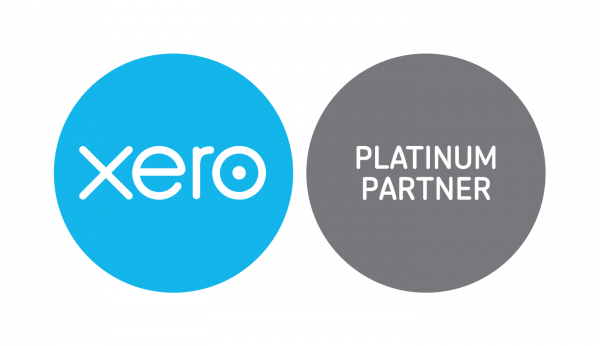5 Common Problems when Invoicing in WorkflowMax and How to Fix Them

1. Original quote amount gets lost when fixed price variations are added for invoicing?
This happens when a new Fixed Price Variation is added to the Job as a new Quote, and overwrites the original quote. Then when it comes time to invoice, the original quote has been lost. It is not clearly marked, but in WorkflowMax there is only ever one active quote on a job. Once a Quote is accepted and on the job, it cannot be edited.
Solution
To add a fixed price variation to a quote, go to the Financial Tab of the Job and press on “New Quote”. This will pull through the original quote and you can then add a new Task or Cost. Do not delete the original Tasks and Costs that were part of the original Quote. If you need to send only the variation to your client, then simply export it to another format and send from there. You will then be able to invoice off both the original and the new fixed cost. The first quote stays on the job for reference and audit purposes. In my view it’s also best practice to always keep a PDF of any quotes sent to the client, within WorkflowMax. When emailing the client, simply add in your collaboration email and the job number into the subject line.
2. Extra charge-up work on a quoted job gets missed when invoicing?
This happens when a new charge-up work is added to a job with a quote on it, either by adding additional time into tasks that were part of the quote, or adding new tasks to the job. If there is a quote on the job, and you choose to invoice “By Quoted/Estimated Time/Cost” then WorkflowMax will ignore all time /costs that have been added in during the progress of the job, and give you only the quoted amounts to invoice. If you have added extra time onto a task that needs to be billed separately, you won’t see this, and you won’t see extra tasks that have been added to record charge up variations. NB: Newly added tasks will show if you have entered estimated times. This is because invoicing “By Quoted/ Estimated Time/Cost” will always pick up Estimates. However, if the estimated time really was only an estimate for internal tracking, and not a new added quote for the client, you will find you won’t be able to invoice by the actual hours. What sometimes happens is that two types of invoices are produced from a single job – one invoice will be “By Quoted/Estimated” and the other will be “by Actual time/costs”. This danger is producing two types of invoices from a single job is that all hours logged will pop up for invoicing by Charge-Up, including those logged on tasks that are part of the quote. So it’s quite easy to invoice by charge-up and then invoice the same work by quote. The other issue is if time logged on one task is a combination of some which is included in the quote, and some which is extra charge-up to be invoiced separately. You will have no way of easily separating them. In short – my recommendation is to never try to invoice both Quoted and Charge-Up work from one job.
Solution
In my view best practice is:
- deal with any Fixed Price Variations by updating the quote so the Variation is available for invoicing
- deal with any extra charge up work by starting a new job (you can link the jobs through a code in the name)
- always invoice quoted jobs “By Quote”
3. Need to show just one summary description of the invoice for the client?
This usually happens when the client is being sent an invoice that has a summary description of the work or stage which is different from the Task Names or Timesheet notes.
Solution
The simplest solution which is often missed is to use the Invoice Description field. This is a field that does not appear when an invoice is being created, but once created if you edit the invoice then the Description Field becomes available. If you are using the default invoice in WFM you will see Invoice Description as an option to print or not. It can also be included as a field in a custom template.
4. Invoicing a Quoted Amount over months and cannot easily see how much of the quote has been invoiced?
This happens when a quote has been put on a job as a Calculated Quote. Then when this type of quote is partially invoiced, WorkflowMax will assume whatever is not invoiced is being written off. This will happen whether you do a Calculated Progress Invoice and change the number of hours being billed, or if you do a Fixed Price Progress Invoice and overwrite the amount to be billed. To get around this, sometimes businesses invoice by actual hours logged, rather than by the quoted amount. Sometimes businesses also add new tasks just for the purpose of billing, which adds to the confusion.
Solution
Ensure your quote on the job is a Fixed Price Quote, even if you are not overwriting any pricing from what WorkflowMax has calculated. Then, when you do a Fixed Price progress invoice “By Quoted/Estimated” you can partially invoice each task / cost knowing that WorkflowMax will hold a running balance of what’s available to bill next time. If the work being done needs to be tracked on different tasks than are on the quote, that’s fine and you can see job progress at any time. Just don’t invoice from them! If you set your Estimated Billings to be based on Quote/Estimated (if there is a Quote on the job), then you will always have a correct figure for that and you can easily see what’s left to invoice on the quoted amount. WIP will continue to show as the accumulation of Labour and Costs actually logged on the job and you will need to chose whether to write this off every time you invoice, or not – depending on your internal business preferences. If you write off the WIP or mark those internal tasks as Non-Billable, you will still see the cost of time logged, but not the billable amount. So you won’t be able to easily compare what’s been quoted against what would have been billable as a total. If you don’t write it off then your Estimated Billings will still be correct – as they are based on the Quote. The WIP won’t be correct though as all the time since the beginning of the job will be showing but you will never actually be billing that time. Best practice will depend on your organisation’s individual work process.
5. Invoicing by Charge-Up Stages, each of which are a combination of multiple Tasks and Costs?
This happens when you need to invoice your client at multiple Stages throughout a job, and each Stage is made up of multiple Tasks and or Costs on the job, that your client does not need to see individually. WorkflowMax does not currently allow you to group Tasks and Costs for invoicing. You may be using the Folders feature which will allow you to see a Financial Summary for a group of Tasks and Costs, but you are unable to invoice by Folder.
Solution
The usual way organisations get around this limitation is to add in a new Billable Cost item to represent the Stage they want to invoice. Use the Folder Feature to view the group of Tasks and Costs and confirm how much is going to be billed, and then bill that amount by adding the new cost item with the Stage description you want the client to see.
Where things can sometimes go wrong
...is that the WIP from the original Tasks and Costs need to be written off at this point, otherwise WorkflowMax will be expecting to invoice those Tasks and Costs in future. In this case, your Financial Summary values will be wrong because you will have duplicated what you are actually going to invoice – once on the original Tasks and Costs, and once on the new Cost items. Write off the WIP immediately after invoicing the Stage, so that when it’s time to invoice again only the new time and costs since the last invoice will be available for billing. The Financial Summary will then show the new Costs as the only items being invoiced, and if the WIP has been written off each time, then the original Tasks and Costs will show what’s building up since the last invoice.
Living Business are WorkflowMax specialists working daily with WorkflowMax across a wide range of industries. Contact me for a no obligation chat on 027 600 5794 or email me at
